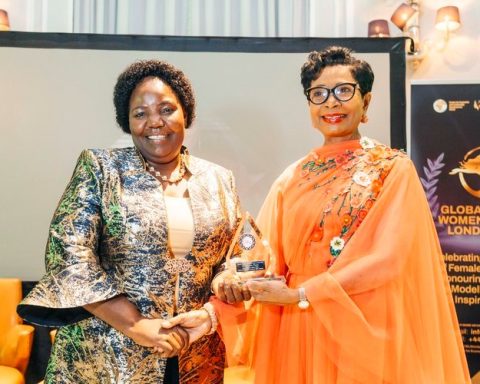Properties worth billions of shillings and lives have over the years been lost in Uganda as a result of illegal or poorly done electrical installations done by unqualified electricians.
As one of the solutions to this problem, the Electricity Regulatory Authority (ERA) launched a campaign to train and grant certification only to qualified electricians, in a bid to save lives and property.
To achieve this goal, the Authority recently established an Installation Permits Committee Coordination Centre, aimed at strengthening the supervision of licensed companies and extend services to consumers.
Besides ensuring that only certified electricians are employed in the sector, this Centre will also be the main interface between the Installations Permit Committee (IPC), the installation wire persons, and ERA as a regulator.
Explaining what this means to the common Ugandan, Engineer Ziria Tibalwa Waako, the Executive Director ERA, said that; “For those who are not familiar with the terminologies, when you want to implement electrical installation within your premises, industry, commercial facility, you are supposed to utilize a ‘Power Kapo’. We ‘baptized’ these people Power Kapo. These are qualified people who have gained practical experience and are well-tested and authorized by the Authority to handle electrical installations at a certain level.”
Waako added that; “We have those who can handle only domestic households of up to five bedrooms, those who are authorized to handle both domestic and three-phase industrial wiring, those who are authorized to handle three-phase industrial only and those who are authorized to work on to the grid. Some are caped at 33KV distribution and others are able to work even on the transmission network. Those are the ones you see as sub-contractors with main contractors implementing various projects across the value chain; generation, transmission and distribution. These are the front-end technicians and engineers who are in charge of installation, and ensuring safety of supply.”
She noted that certified electricians are fundamental for attainment of Uganda’s electrification agenda.
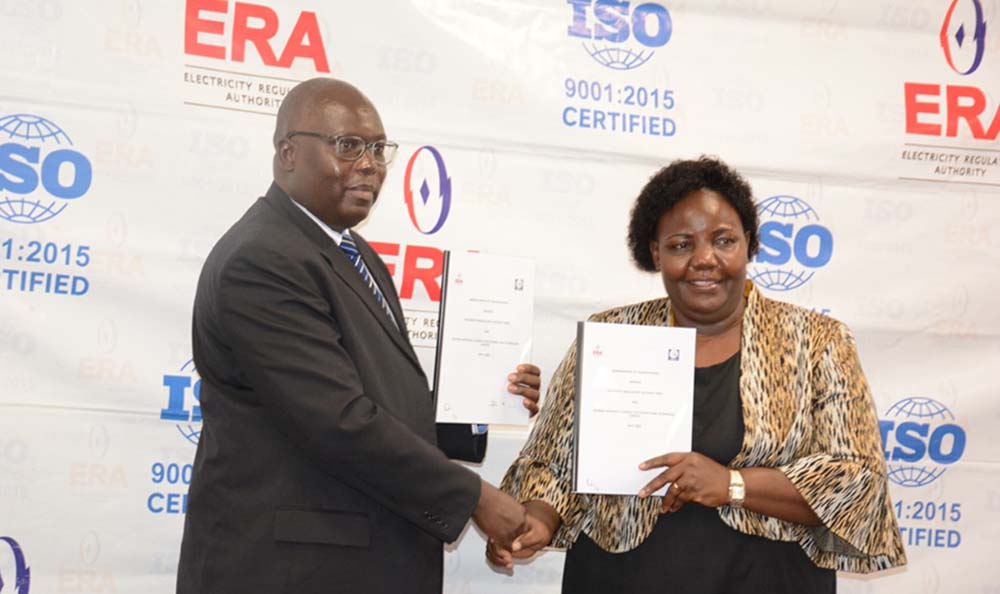
ERA Rolls Out Training Programme For Electricians
It should be noted that Uganda presently has slightly over 2,700 Certified Electricians who have been duly authorized by the ERA to install Electrical wiring on premises, as provided for by Section 88 of the Electricity Act, 1999.
With the growing Electricity Generation Capacity, expected to reach 1854.2 MW next year when the 600 MW Karuma Hydropower Project is commissioned; and the ongoing countrywide Electricity connections under the Electricity Connections Policy launched in November 2018, Uganda requires up to 4,000 Certified Electricians to fully support the Electrification Agenda.
As such, the current shortage of tested and Certified Electricians is indeed a problem for the Electricity Supply Industry.
However, the bigger problem is that a large section of the public is not aware of the obligation to use tested and Certified Electricians to undertake Electrical installations for their premises.
So, in order to deal with these problems, the Electricity Regulatory Authority with funding from the World Bank is undertaking two related critical activities under the #PawaKapo campaign, which was launched by the Minister for Energy and Mineral Development in November 2019.
The campaign is aimed at Training and Certification of persons who have had formal education in Electrical installation (with at least Craft Certificate Part II) but do NOT possess adequate practical experience that would be necessary to get Certification and own a Wiring Permit issued by ERA, for purposes of wiring homes and commercial establishments (Permit Classes D and C, respectively).
The campaign also involves sensitization of Electricity Consumers and the public on the requirement to enlist the services of Certified Electricians while undertaking electrical installations at home, in offices, factories, and other premises.
The implementation of the aforementioned activities under the #PawaKapo campaign supports the Government’s aspiration to increase Access to Electricity to a rate of 60% by the year 2040.
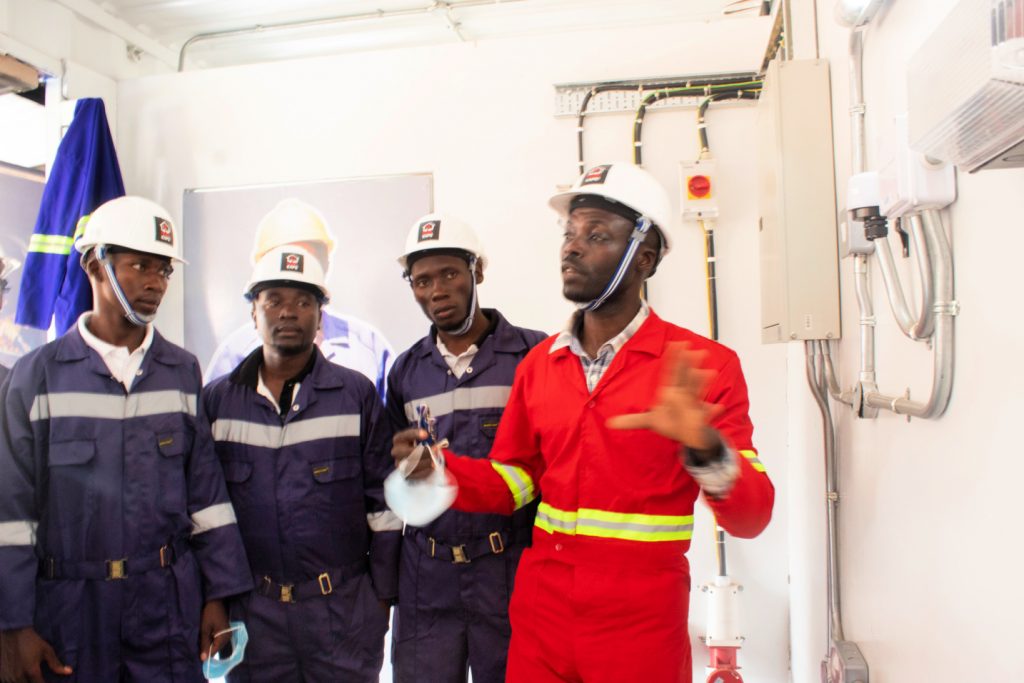
It also presents major opportunities for existing (but UnCertified) and prospective Electricians to register for the Free Training on Electrical Installations.
According to Waako, this training aims at enabling installation electricians to upgrade their skills prior to obtaining Certification by ERA.
She notes that “While ERA ordinarily issues Electricity Installation Permits for Classes A, B, C, D, Z, and X, the PawaKapo training targets beneficiaries who are interested in wiring homes and commercial establishments (holders of Permit Class D and C).”
She explains that the training is conducted using demonstration cubicles at select Technical Institutes in Uganda, which are collaborating with ERA on the #PawaKapo campaign.
“These are: Nakawa Vocational Training Institute (Kampala); Uganda Technical College (Lira); Rukungiri Technical Institute (Rukungiri); Uganda Technical College (Bushenyi); Arua Technical Institute (Arua); Uganda Technical College Elgon (Mbale); and Uganda Technical College Kyema (Masindi).”
According to the Authority, a Certified Electrician enjoys numerous benefits, most notable being effortlessly earning the trust of their clients to do Safe and Reliable Electrical installations.
This gives him or her an edge over Kamyufus (illegal installers) whose space is narrowing further with this campaign; and protects the former from punitive action in form of fines or imprisonment, as stipulated by Section 88 of the Electricity Act.
For Electricity Consumers and the public, Waako explains that the training increase the pool of PawaKapos (Electricians) that are available to undertake Legal, Safe and Quality Electrical Installations.
“With the existence of an updated database of all the Certified Electricians across Uganda, ERA can get you connected with the authorized Electricians to ensure the Safety of your Life and Property, which is paramount. Choose Safety. Forget the Kamyufu! Look out for a #PawaKapo within your vicinity,” the Engineer advises.
ERA, UBTEB Sign MOU To Increase Certified Electricians
Section 88 of the ERA Act provides that no person shall install any electrical wiring of extension to existing wiring on any premises without first obtaining an installation permit issued by ERA.
As one way of ensuring the increase of certified electricians in Uganda, ERA this year signed a Memorandum of Understanding with the Uganda Business and Technical Examinations Board (UBTEB), a technical, vocational, educational, and training (TVET) examination body, to train and certify electricians.
According to this MoU, both entities will establish a working relationship that started in July 2021 with the aim of creating lasting solutions to the low number of certified electricians in the industry.
The MoU was signed by the ERA E.D Eng. Waako, on behalf of the Authority, while UBTEB was represented by Mr. Onesmas Owesigye, who heads the institution.
Under the agreement, ERA liaison with UBTEB is expected to sensitize electricians on the requirements needed for an installation permit throughout their application process until they qualify to get licenses.
According to Tibalwa, the agreement is in line with the government’s agenda to increase the access of electricity to the many households and businesses in Uganda and in so doing more than double the number of the categories of electricians that are expected spur growth in the industry.
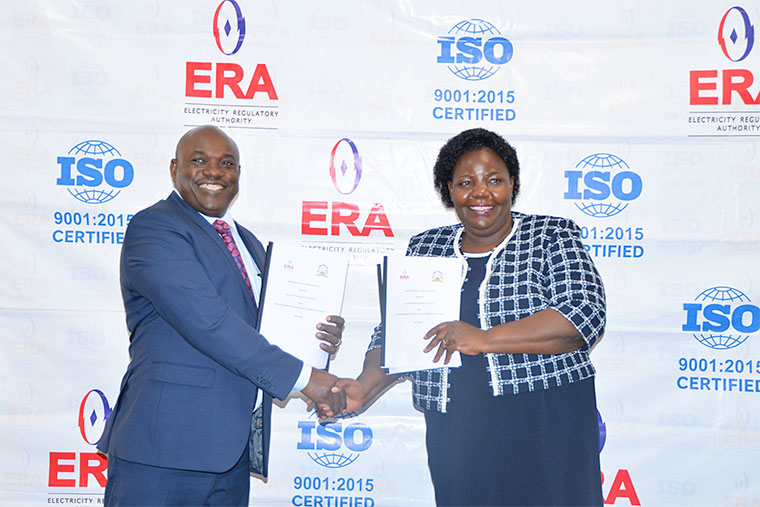
Importantly, UBTEB sees the partnership as an opportunity to benefit from ERA’s professional input towards the issuance of permits that have been assessed by the examinations board.
ERA To Certify 3000 Electricians Within Three Years
Following the partnership between ERA, the Directorate of Industrial Training (DIT) and UBTEB, the Authority aims at training and certifying 3,000 electricians by 2025, as the only way to reduce quack electricians (Kamyufus) in the sector.
“We expect that this partnership will support the government’s agenda of accelerating access to electricity through growth of the number of certified electricians of permit classes D and C from 1,300 to 3,000 by 2025,” Ms Waako says.
She explains that the campaign to increase the number of certified electricians started in July 2021 when ERA and DIT formally started to collaborate, through engagements to establish mutual cooperation and partnership between both entities, in order to increase the number of certified electricians in Uganda.
“This MoU aims at ensuring all electricians eligible for permits are provided with information on applications and its necessary requirements by conducting interviews for all applicants and issue certified permits,” Waako says.
“We started with tapping vocational institutions with demonstration cubicles to support us to practically expose and provide materials for practical skills because what the public requires is not only qualified technicians with certificates but with practical experience,” she adds.
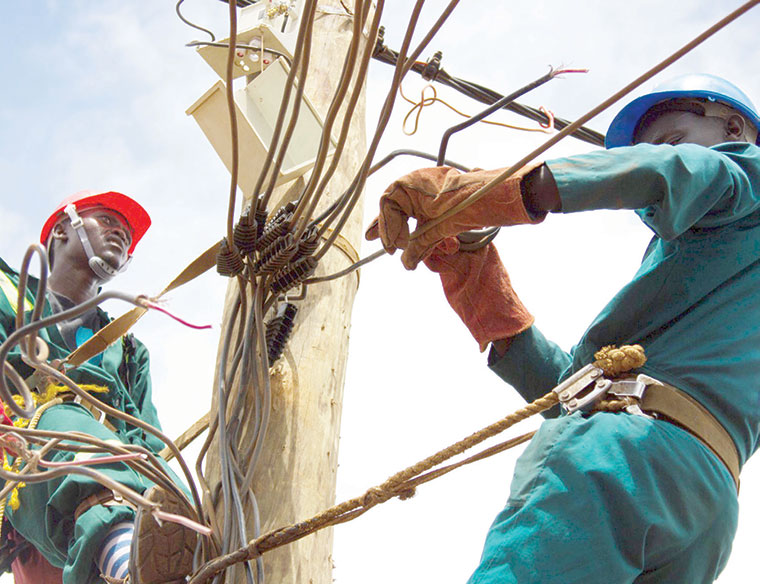
She explains that both parties have systematically formalised the process of graduating the technicians from DIT and taking them through practical exposure and certifying them to be able to pass out competent efficient professional.
“We think through this MoU, graduates of DIT will be sensitized to quickly get the requirements to apply to ERA to be certified and we are committed to feed into the curriculum at DIT because we are close to the market and private users of electricians and suppliers so the products are relevant to the industry,” Waako asserts.
Mr. Patrick Byakatonda, the acting director DIT, notes that in line with the BTVET Act 2008 section 14 and 21, DIT has been assessing and certifying domestic electricians in Level I and II and industrial electricians at Level III but the number is still very low.
“With support from Private Sector Foundation Uganda, DIT has recognised competences of 814 electrician quacks, who later have been licensed by ERA and this shows that we need to bring more on board so that we reduce the effects which results from improper installation of electricity,” he explains, adding that ERA is set to start certifying assessors and verifiers.
Defining the different classes of qualified electricians, Waako revealed that;
A Class C electrician can install power in hotels and schools because by nature, hotels and schools are storeyed buildings and have several rooms that require three phases.
A Class D electrician on the other hand can wire a bungalow with five rooms.
![]()




